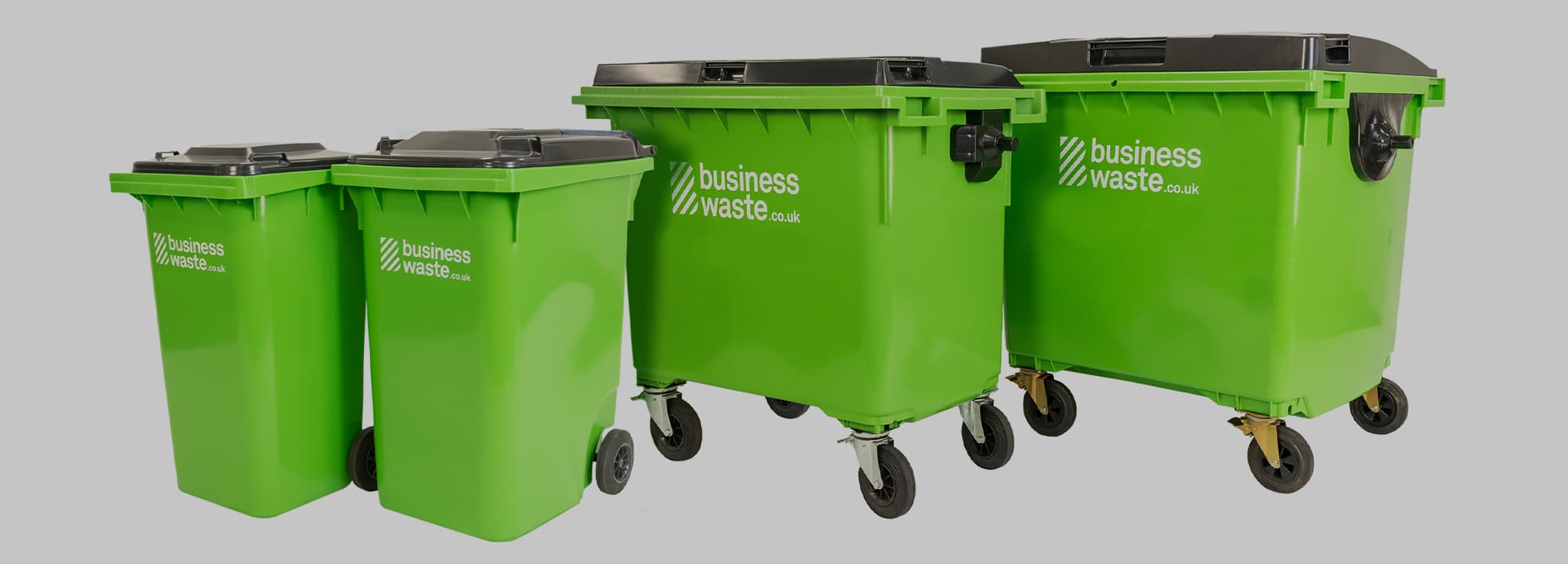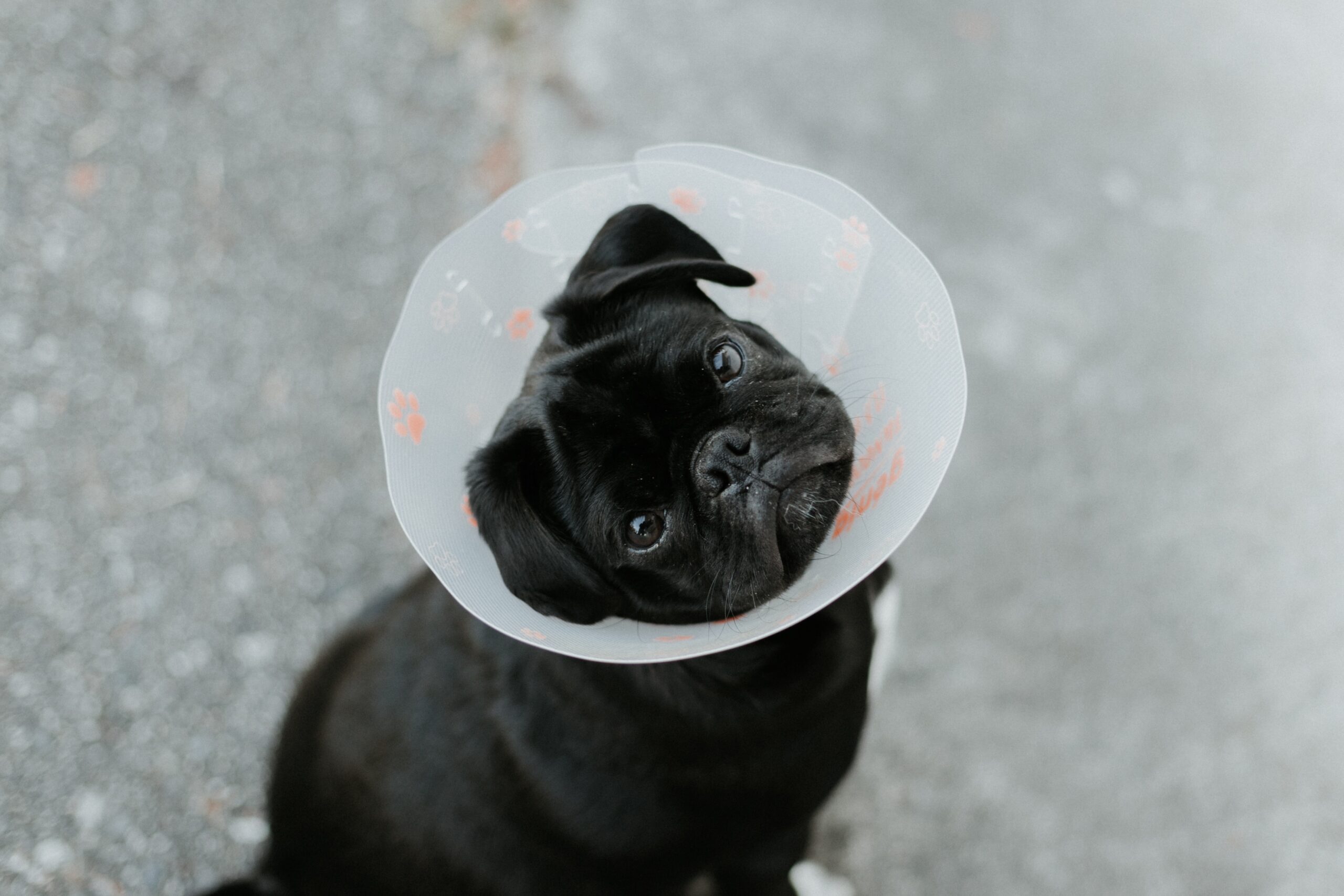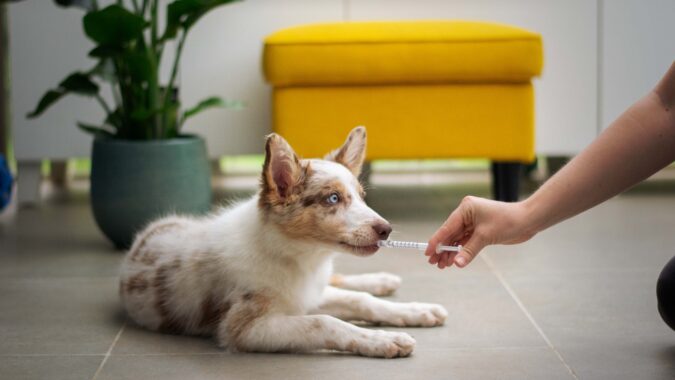
Veterinary Waste Disposal
When running a veterinary practice, your main aim is to provide animals with the best possible care, ensuring they feel like themselves again in no time. Throughout such processes, you’ll produce large volumes of waste – from sharps to pharmaceutical waste. It’s important you dispose of any veterinary waste in a safe and secure manner.
Disposal of veterinary waste must be done properly to comply with UK regulations, protect your staff, and the environment. At Business Waste, we can provide the right bins, collections, and disposal methods to ensure good management of all your vet waste.
Call 0800 211 8390 or contact us online and our expert team can provide a free quote for veterinary waste disposal from anywhere in the UK. Learn more about vet waste and how to manage it with Business Waste.
Fast, Free Quotation
Get a fast FREE quote for your veterinary waste disposal
- Free quote within 1 hr
- Any type of vet waste
- FREE bins and delivery
- We cover all of the UK
Veterinary waste
management
Vets must take a proactive response to dispose of all waste their facility produces. Veterinary waste management includes everything from ensuring the proper storage of waste to arranging removal and disposal in line with the relevant regulations. For good veterinary waste management at your practice, you should:
- Put together an effective veterinary waste management plan.
- Ensure all health and safety regulations are followed within their practice, especially when handling hazardous or infectious waste.
- Store all vet waste in the appropriate bins and containers before collection in an area that’s not immediately accessible to the general public.
- Arrange collection of all veterinary waste by a licensed carrier and ensure a waste transfer note is completed.
There are many different sharps used within a veterinary practice – such as needles, syringes, scalpels, lancets, staples, and other blades. Managing sharps waste disposal in a veterinary practice requires disposal in a safe and secure manner. To dispose of veterinary sharps:
- Ensure you’re wearing appropriate PPE when disposing of any items that could pierce the skin.
- Don’t attempt to bend or break sharps before disposal. This could lead to accident and injury and interfere with the disposal process.
- Use a needle clipper where appropriate to remove the sharp part of the syringe.
- Dispose of waste in the appropriate sharps bin immediately after use – and don’t overfill the bins.
- Arrange for vet sharps waste to be collected by licensed waste carriers.
Veterinary waste
bins
As the average veterinary practice produces large and varied volumes of rubbish daily, you need a strong waste management plan in place. This includes using the correct vet waste bins to safely store and dispose of all waste types.
There are various bins, bags, and containers to safely store veterinary waste before collection. Each veterinary waste bin is designed to hold a specific kind of waste, reducing the risk of contamination, and ensuring proper disposal. Explore some common veterinary waste bins, bags, and containers and their uses.
Veterinary waste
collection
Arrange veterinary waste collection and disposal with Business Waste. Our nationwide network means we work with licensed waste carriers across the UK who can easily collect and transport your vet waste for safe and compliant disposal. From city centre to suburban and countryside veterinary practices, we offer solutions for all.
Get free veterinary waste bins delivered to your vets practice or surgery and simply pay for collection. Ensure there’s an accessible spot for our licensed waste carriers to drop off and pick up the bins, bags, and containers you need. Plus, you’ll need space to safely store them on your premises.
You can then arrange collection of your vets waste on a daily, weekly, or fortnightly schedule – depending on the amount and types of waste you generate. After collection, your waste will go to a nearby facility for safe disposal in line with all relevant veterinary waste disposal guidelines.
Call 0800 211 8390 or contact us online for a free quote for veterinary waste removal. If you have any questions or simply want some advice on the right type, number, and size of veterinary waste bins and collections, our team can help work out an efficient and cost-effective solution.
How does veterinary
waste collection work?
-
Select your free bins
It’s quick and easy to organise commercial waste collection for your business.
Simply start by telling us the:
- Type of waste you need removing
- Size of bins you require
- Number of bins you want
We’ll provide you with a free quote.
-
Arrange delivery
When you’re happy with the type, number, and size of free bins, tell us when you need your bins delivering.
Let us know about any access issues where you want the bins delivering – such as locked gates, access codes and times. We’ll get you up and running in no time.
-
Fill up your bin
After the free bins arrive at your chosen location, fill them up with the agreed waste type.
Make sure you remain within any weight limits for the specific waste type and bin size.
-
Get your business waste collected
We’ll arrange waste collection at a time and frequency to suit you and the amount of waste you have.
As featured in…
What is
veterinary waste?
Veterinary waste is simply any waste produced within a veterinary practice or surgery. Most vet waste classes as clinical waste – as it’s produced within a healthcare setting and is potentially hazardous to those who encounter it. However, even packaging for animal feed and general waste created by staff and clients counts as veterinary waste.
Some of the main types of vet waste include:
- Expired or superfluous medications
- Medicinal vials
- Swabs and bandages
- Sharps (needles, syringes, and lancets)
- PPE (aprons, gloves, and face masks)
- Animal training pads and bedding
- Antibacterial and antiseptic cleaning products
- Offensive waste (waste contaminated with excrement or similar products)
- General waste (produced in the daily running of your business)
- Plastic or packaging waste

Veterinary waste disposal
regulations and legislation
There are numerous legislations and regulations in the UK that dictate how vet waste should be stored and disposed. Some of the main veterinary waste disposal regulations that cover its storage, removal, and disposal (and provide guidelines for what your practice needs to do) are:
- The Environmental Protection Act 1990 – Veterinary practices must obey the same waste regulation laws as any other business operating in the UK. This means taking all reasonable steps to appropriately manage and dispose of any waste produced at your facility. You must do so with the environment in mind. This obligation is often described as a ‘duty of care’ and is laid out in the Environmental Protection Act.
- The Controlled Waste (England and Wales) Regulations 2012 – This legislation classes clinical waste as a controlled substance that must be disposed of with care. It works together with the Environmental Protection Act to ensure safe veterinary medical waste disposal occurs.
- Hazardous Waste Regulations (Amendment) 2009 – This legislation requires vets to identify any types of hazardous waste they produce and store it accordingly. For example, hazardous veterinary waste should be stored separately from other waste in a secure container to minimise the chances of cross-contamination. Vets must also contact the Environment Agency to inform them of any hazardous veterinary waste produced and complete a consignment note when it’s collected.

Vet waste collection
FAQs
-
How can you reduce veterinary waste?
There are a few steps you can take to reduce the amount of waste produced at a veterinary practice. These include:
- Reducing how many single-use plastics or similar products you use onsite.
- Setting up a recycling scheme within the practice. Ensure all members of staff are aware of the steps they can take to reduce waste.
- Carefully managing stock and supplies, ensuring that you’re aware of the use-by dates on medications and similar products.
- Investing in reusable PPE garments, such as surgical masks, to avoid throwing away lots of items in a single day.
- Donating materials you no longer need (but remain useful) to local charities. For example, animal shelters will accept donations of bedding and blankets.
-
How often can veterinary waste be collected?
Veterinary waste can be collected as often as necessary – depending upon the amount of waste you produce at your facility every day. As a result, you may require daily, weekly, or fortnightly collection. Our flexible collection schedules mean you can adapt to meet your changing needs too.
-
How do vets dispose of chemical waste?
Vets can produce a range of chemical waste such as sterilisers and disinfectants, photographic chemicals, disinfectant, and x-ray solutions. These need to be stored in separate chemical waste bins and containers to avoid contamination or causing harm to human health. After collection and removal, most chemical waste from a vet practice is incinerated for safe disposal.
Get a fast, free quote for vet waste collections
Get a fast FREE quote for veterinary waste removal
- Free quote within 1 hr
- Any type of vets waste
- FREE bins and delivery
- We cover all of the UK